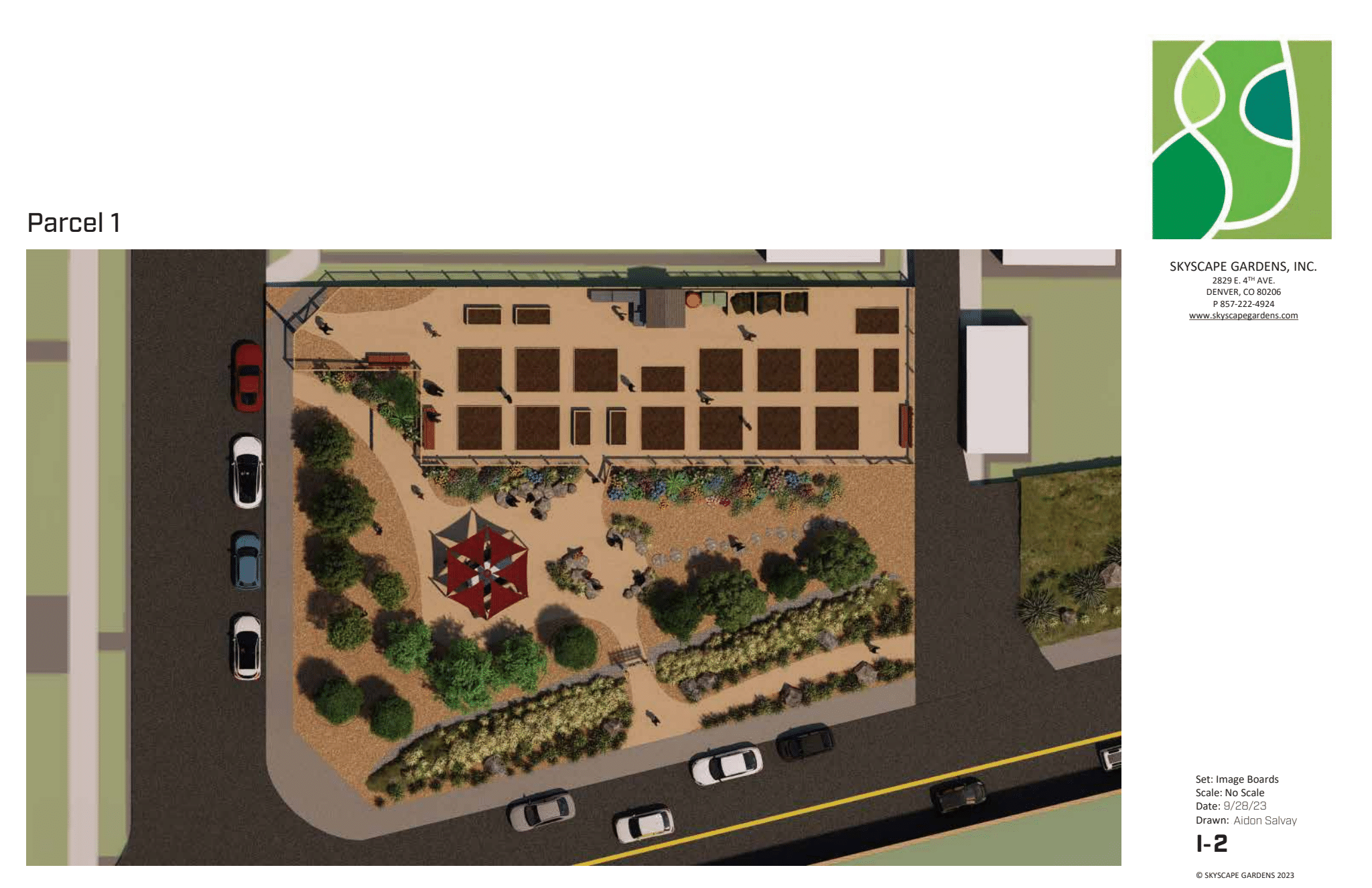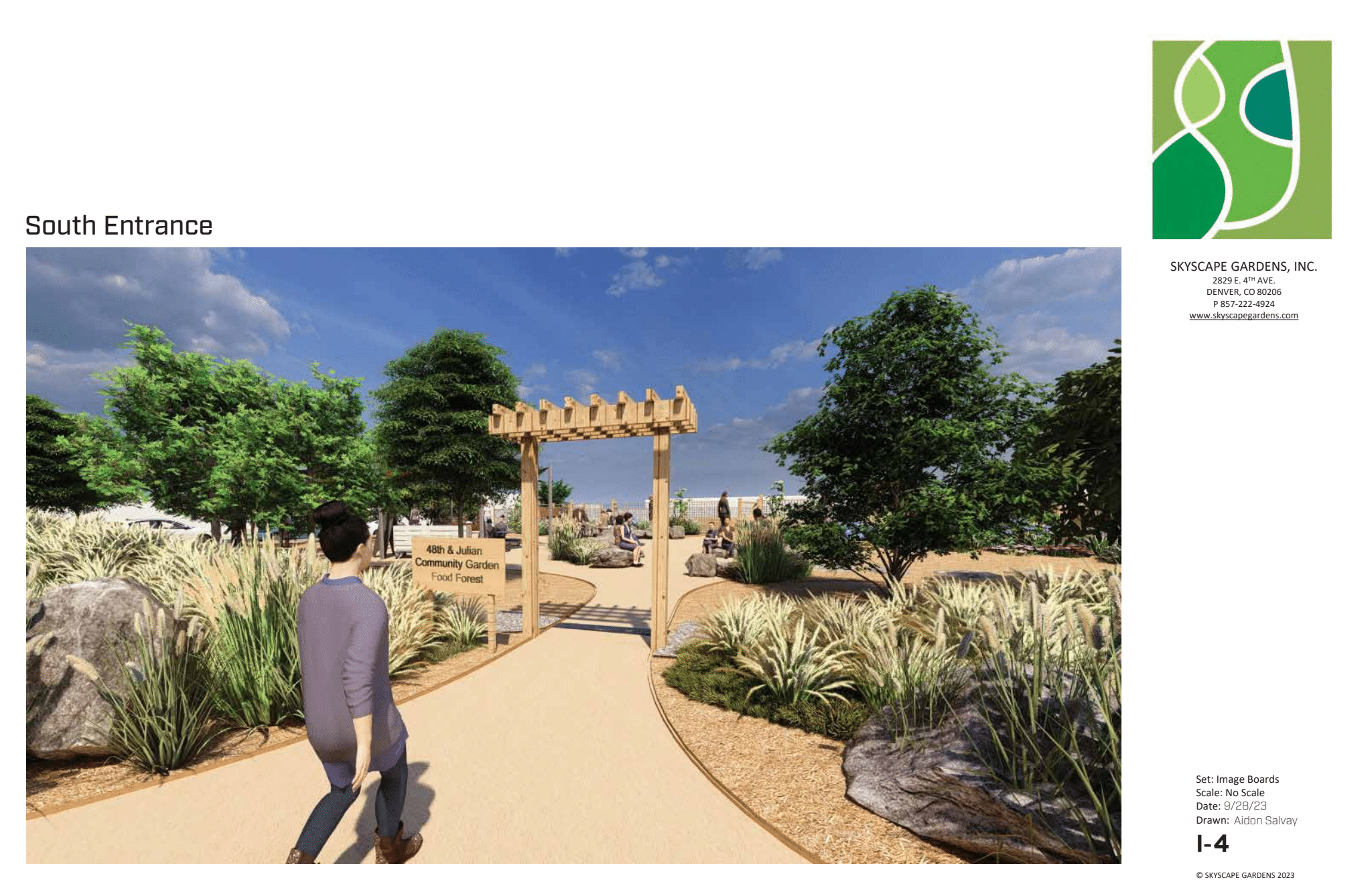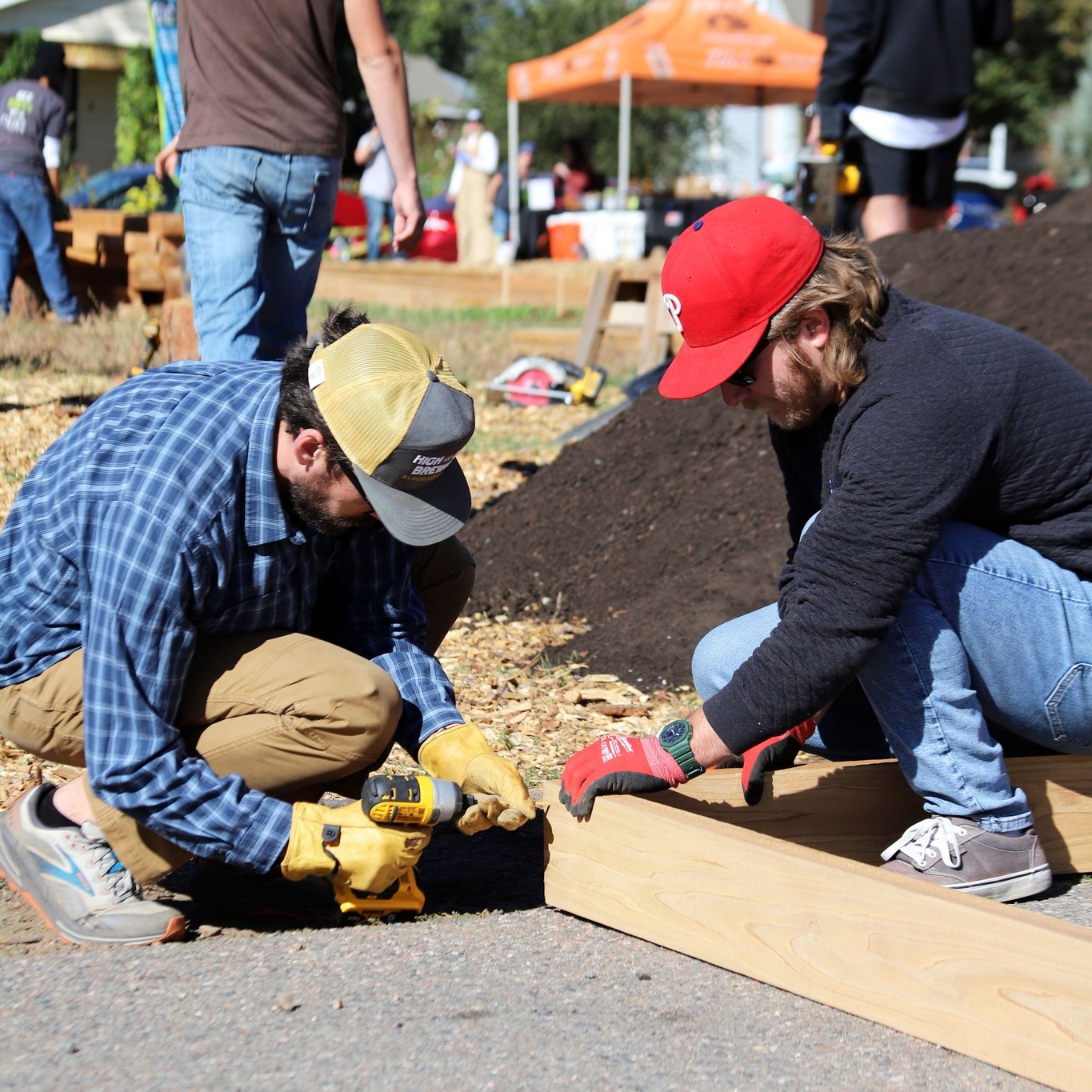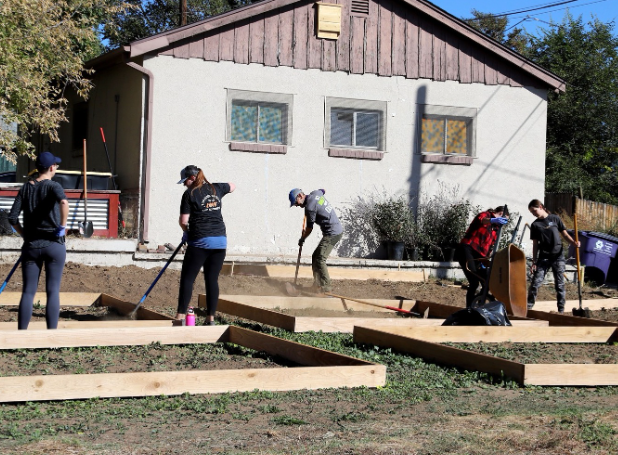The largest independent community garden organization in the country just reached a significant milestone this year. On October 13th, Denver Urban Gardens (DUG) transformed an orphaned plot of city-owned land that sat vacant for more than 60 years into The 48th & Julian DUG Community Garden— making it the network’s 200th community garden across seven counties in the Denver Metro area. This is a monumental achievement not only in Colorado but in the U.S.
For 45 years, DUG has worked towards its mission: build a garden in every neighborhood, create community and cultivate food and climate resilience. “When people hear about community gardens, they think “that’s sweet” or that it’s a hobby. What they don’t realize is that they are extraordinary constructs for a city,” said DUG CEO Linda Appel Lipsius. “It’s a way for people, especially city dwellers, to grow organic, hyperlocal and highly nutritious food. It’s also great for folks who weren’t born in the U.S. to grow the food they grew up with and can’t find at the grocery store”.

Not only does this increase the food supply, but community gardens may remedy loneliness. “On the community side, a few months ago, Surgeon General Vivek Murthy declared an epidemic of loneliness, and there is an increase in depression and anxiety due to social media and the pandemic. And there’s also a decline in third places—spots you can go to hang out or work with someone on something,” said Lipsius. “Community gardens are that—places to get to know your neighbors or people you wouldn’t ordinarily know and grow food.” Mental well-being can come from creating these little oases.
DUG benefits neighborhoods all across the Mile High. From as far south as Lone Tree, up north to Westminster and west of Denver in Golden, the organization has built a garden in every type of neighborhood. “We don’t own the land our gardens are on, so we have partnerships and landowner agreements with the cities, Parks Departments, housing authorities and the school districts,” said Lipsius.

Over the years, DUG has maintained a great relationship with the Parks Department, building 12 gardens in their space. In the ’60s, a remnant of Parks’ land was cut off from Rocky Mountain Park after the construction of I-70 created a separation. The orphaned plot sat empty until this year when Councilwoman Amanda Sandoval knew how to transform it. Sandoval called on DUG to “regenerate the land, reduce the heat island effect, enhance food access and gather the community in nature” with a new garden. The last build occurred in early October, with 30 volunteers and DUG staff members creating infrastructure by prepping the wood, hammering garden beds, shoveling compost and planting trees. A food forest sits adjacent to the garden to provide food for the community. The garden’s gates will open after the first growing season next spring.
Lipsius and the DUG family look forward to creating an even greener future after receiving a $500,000 grant from the Environmental Protection Agency (EPA). Through the support of the Environmental Justice Collaborative Problem-Solving (EJCPS) Cooperative Agreement Program, the organization will use these funds in six West Denver neighborhoods, including Barnum, Barnum West, Sun Valley, West Colfax, Valverde and Villa Park, to address issues of public health and environmental justice. “The West area is historically redlined and has the lowest tree canopy in the city,” said Lipsius. “There’s no parks, just sidewalks. It just feels like a smaller area that we can really focus on.”

DUG hopes to have at least six community gardens built and create an additional nine food forests in the future with the help of the grant. The organization also wants to make an impact not just in Colorado but across the country. The Urban Garden Project, in its early stages, will be a way to support garden and food forest organizations all over the U.S.
For anyone looking to connect with their community in Denver and dig with DUG, from drop-ins to projects, the organization is always looking for volunteers.





